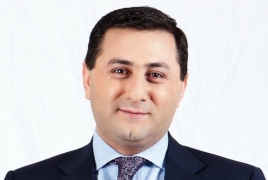
Former MP Samvel Farmanyan, in a detailed Facebook post, shared an insider account of a key episode from Armenia's 2018 political shift—how Karen Karapetyan was (not) nominated for Prime Minister.
Following Serzh Sargsyan’s resignation under popular pressure, Karapetyan, then acting PM, emerged as the clear successor. At meetings held at the Prime Minister’s residence, Sargsyan and Republican Party (RPA) leaders endorsed Karapetyan for the position. Karapetyan agreed, urging unity and optimism.
Farmanyan recalls that even Sargsyan offered to resign as RPA chairman to transfer all power levers to Karapetyan. However, Karapetyan declined, seemingly to avoid deeper public association with the RPA during a turbulent time.
Despite apparent consensus, mounting street protests and the emotional toll on MPs—including personal threats—dismantled the plan. RPA decided Sargsyan would individually meet all party MPs to persuade them to support Karapetyan. These conversations extended into the early morning hours.
At one point, Karapetyan privately assured Farmanyan he had control over the situation and would soon speak with Russian President Vladimir Putin to resolve it. That call happened on April 26, and many, including Farmanyan, believed tensions would ease.
But the next day, opposition leader Nikol Pashinyan intensified his campaign, publicly rejecting Karapetyan and declaring he must become PM or Armenia would be without one.
Karapetyan eventually withdrew his candidacy, citing severe family pressure, reportedly telling colleagues: “They shut the door and gave me a choice—us or all this.” Farmanyan defends Karapetyan’s choice, noting the intense and dehumanizing pressure at the time.
With no alternative nominee, RPA MPs voted against Pashinyan on May 1. The plan was to support an alternative candidate if proposed by Prosperous Armenia or ARF. Despite rumors, no such nomination materialized.
On May 8, with no alternative, several RPA MPs—particularly businessmen—chose to support Pashinyan, and he was elected Prime Minister.

